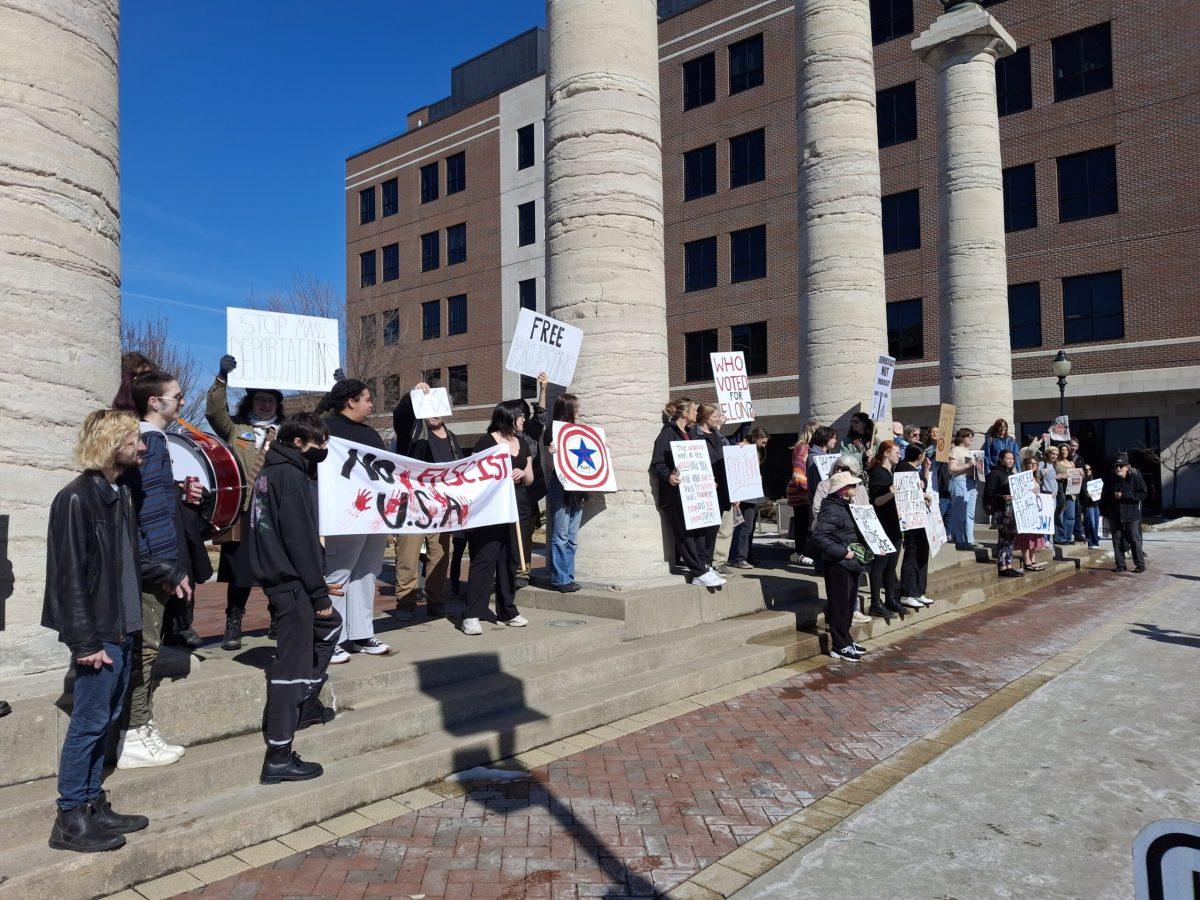Queer Monologues brought a new perspective to Pride Month at MU by giving a voice to the struggles those in the queer community face.
Seven members of the MU community took the stage at Studio 4 in McKee Gymnasium on April 14 to share their experiences, thoughts and feelings as part of MU’s Pride Month. This was the 13th showing of Queer Monologues at MU.
The show began with an excerpt from “A Boat Beneath a Sunny Sky” by Lewis Carroll performed by sophomore Alli Hoerr. Twelve pieces written and performed by MU students followed, and the show concluded with an excerpt from The Tempest by William Shakespeare performed by sophomore Max Farris and a farewell piece from a staff member of the LGBTQ Resource Center.
The intimate crowd enjoyed a wide variety of performances. Some were comedic; others were heartwarming, yet all addressed the difficulties associated with being part of the queer community. Farris addressed the way pride is often shown as more of a celebration and how this experience was different.
“Pride, to queer people, is a little bit more than it’s projected in the media, so I think this is a good example of us taking our pride really seriously and expressing ourselves in that way,” Farris said.
Farris also wrote and performed the piece “Unidentified Energy Star,” in which he declares pride for his physical form and the person he is. An engaged audience laughed along with his jokes and empathized with his outpour of emotion.
Farris also mentioned that as a transgender person it is difficult to get cast in things. While people recognize his talent, it is often qualified by his appearance.
“It’s kind of hard for me when people are like, ‘Oh yeah, you have such a nice voice and you’re so talented. I wish you had more facial hair or I wish you were taller,’” he said.
The many different identities represented allowed the show to tackle a number of issues associated with their experiences. This included personal narratives about attacks with homophobic slurs, nonconsensual touch, disordered eating, growing up in poverty and racial tensions. The LGBTQ Resource Center, as host of the event, provided staff from the Counseling Center to help if anyone found the material emotionally triggering.
One performer, A., tackled the subjects of consent and the way society forces people to conform to either/or standards. They wrote and performed the pieces “Touch is Fire” and “Absolutes.c,” in which they posed both comedic and thought-provoking questions to the audience. A. described the experience of performing as both nerve-wracking and exciting and explained what the show meant to them.
“[It was] an opportunity to take space and assert that the University of Missouri — Columbia campus is not just a campus for straight, cisgender people,” A. said.
_Edited by Alexandra Sharp | [email protected]_












